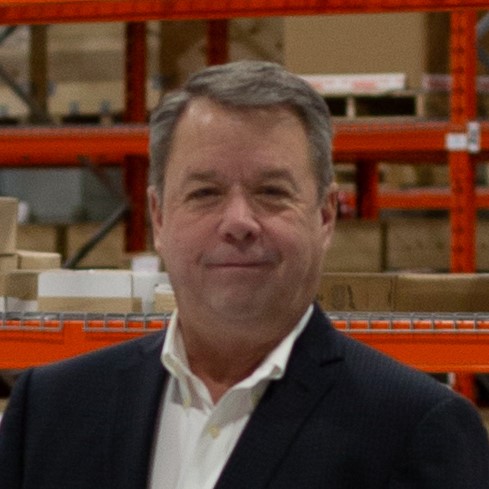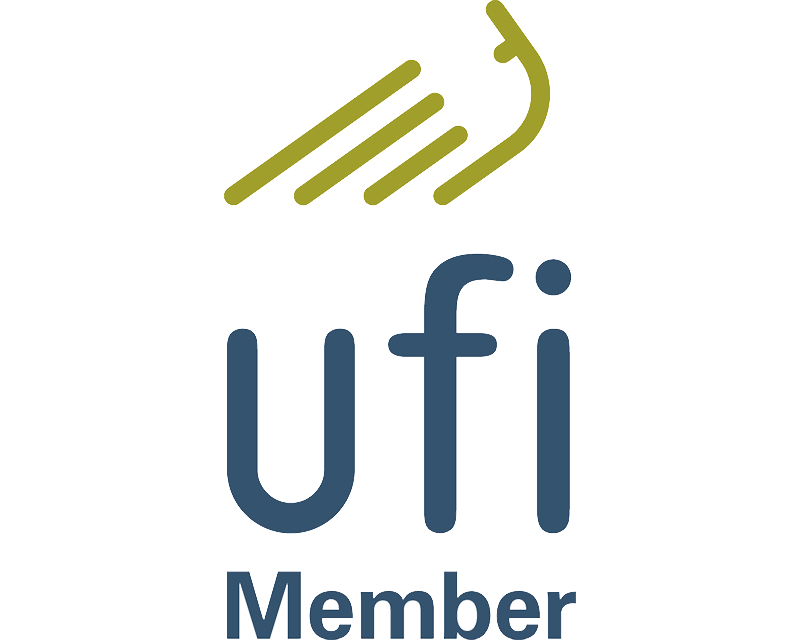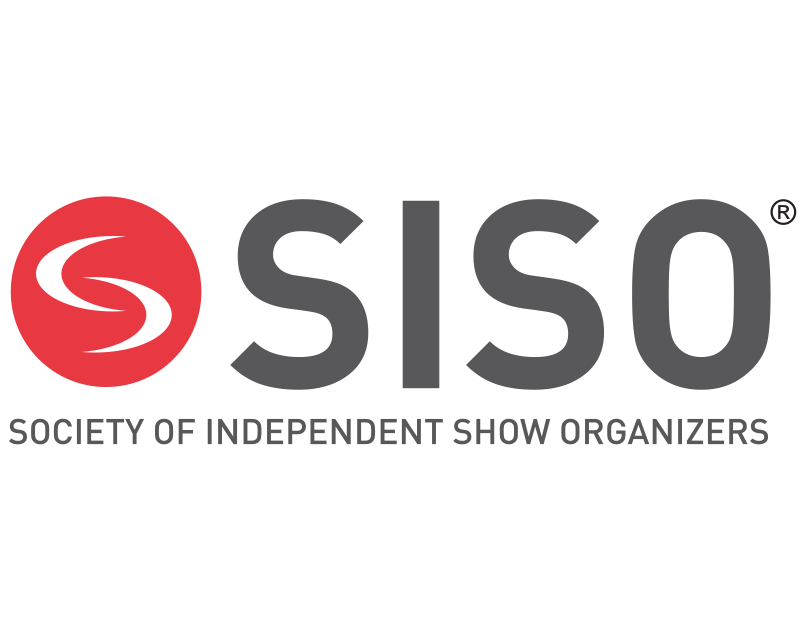- 9 00 AM
- 10 00 AM
- 10 30 AM
Opening Keynote Presentation: The Value of Automation
Automation systems and the control they provide can be among the most valuable investments industrial companies can make. But the experience over the past 25 years demonstrates that these investmen...
 Exhibition Floor - Main Stage
Exhibition Floor - Main Stage 10:30 AM - 11:30 AM
10:30 AM - 11:30 AM
Keynote Presenter
Opening Keynote Presentation: The Value of Automation
 10:30 AM - 11:30 AM
10:30 AM - 11:30 AM Exhibition Floor - Main Stage
Exhibition Floor - Main Stage
Automation systems and the control they provide can be among the most valuable investments industrial companies can make. But the experience over the past 25 years demonstrates that these investments have not lived up to expectations. Industrial companies make huge investments replacing an older automation system with a state-of-the-art system without realizing much, if any, economic improvement. This has led to industrial companies redirecting investments to other areas that have shown measurable financial improvements. The good news is that this does not have to be the case. Automation systems are technically capable of driving huge financial returns for industrial companies, often paying for themselves in well under a year. But for this to happen several critical changes need to be made in procurement processes, project management and execution processes, real-time control, and performance measurement. This presentation will explain the barriers that have been hindering potential financial gains over the past 25 years and the simple remedies that will enable automation and control systems to realize huge economic returns.
Keynote Presenter

- 11 30 AM
Lunch & Visit Exhibition
ISA Calgary Show conference delegates are encouraged to take advantage and enjoy a full lunch before venturing into the exhibition area to explore the latest innovations and network with fellow att...
 PALOMINO ROOM E
PALOMINO ROOM E 11:30 AM - 1:00 PM
11:30 AM - 1:00 PM
Lunch & Visit Exhibition
 11:30 AM - 1:00 PM
11:30 AM - 1:00 PM PALOMINO ROOM E
PALOMINO ROOM E
ISA Calgary Show conference delegates are encouraged to take advantage and enjoy a full lunch before venturing into the exhibition area to explore the latest innovations and network with fellow attendees. Lunch is included with a three day ISA Calgary Show conference pass
- 1 00 PM
Using State-Based PID Controller Analytics to Improve Production Throughput and Efficiency
Control loop performance monitoring (CLPM) solutions proactively identify and isolate a production facility's underperforming PID control loops. Whereas most CLPM solutions generate analytics based...
 PALOMINO ROOM F
PALOMINO ROOM F 1:00 PM - 1:45 PM
1:00 PM - 1:45 PM
Using State-Based PID Controller Analytics to Improve Production Throughput and Efficiency
 1:00 PM - 1:45 PM
1:00 PM - 1:45 PM PALOMINO ROOM F
PALOMINO ROOM F
Control loop performance monitoring (CLPM) solutions proactively identify and isolate a production facility's underperforming PID control loops. Whereas most CLPM solutions generate analytics based on a single, generic state of operation, innovation in state-based analytics now allow CLPM solutions to distinguish the performance associated with each of a process’ many and unique states.
This presentation distinguishes state-based control loop analytics from traditional PID monitoring capabilities. Multiple industry case-studies are included.

- 1 00 PM
Maximizing Value from Industrial Automation Projects
Industrial Automation can provide much more financial value than is the current expectation or practice. Much of the reason automation projects fail to provide the potential financial value is due...
 PALOMINO ROOM G
PALOMINO ROOM G 1:00 PM - 1:45 PM
1:00 PM - 1:45 PM
Maximizing Value from Industrial Automation Projects
 1:00 PM - 1:45 PM
1:00 PM - 1:45 PM PALOMINO ROOM G
PALOMINO ROOM G
Industrial Automation can provide much more financial value than is the current expectation or practice. Much of the reason automation projects fail to provide the potential financial value is due to the traditional project management and engineering processes that are almost universally deployed. Current processes focus on getting automation projects completed in the shortest timeframe. As a result, one of the highest potential value-creation entities in industrial companies - project engineers - are handcuffed when it comes to applying their capability to drive increase financial value. This talk will overview current practices, identify value-generation short-comings, and propose new approaches designed to both get projects done on time while at the same time create high levels of financial value-add.

- 1 00 PM
Panel Discussion: Attracting & Developing Talent: Meeting Industry Needs Today and Tomorrow
Join us for a focused panel discussion on the critical topic of talent acquisition and development in Alberta's evolving industries. Our panel will tackle key themes such as immediate hiring needs,...
 PALOMINO ROOM H
PALOMINO ROOM H 1:00 PM - 2:30 PM
1:00 PM - 2:30 PM
Panel Discussion: Attracting & Developing Talent: Meeting Industry Needs Today and Tomorrow
 1:00 PM - 2:30 PM
1:00 PM - 2:30 PM PALOMINO ROOM H
PALOMINO ROOM H
Join us for a focused panel discussion on the critical topic of talent acquisition and development in Alberta's evolving industries. Our panel will tackle key themes such as immediate hiring needs, effective recruitment strategies, nurturing talent through development programs, and enhancing industry engagement. We'll also explore innovative approaches to attract skilled professionals to Alberta and discuss ways to continuously develop skills to meet industry demands. Don't miss this opportunity to gain valuable insights and contribute to shaping the future of talent in Canada.
Moderator




- 1 45 PM
Digital Journey to Energy Management and Carbon Accounting
In this presentation, we explore the implementation of an enterprise-scale Energy Management Information System (EMIS) at your facilities with the focus on monitoring energy usage, swiftly detectin...
 PALOMINO ROOM F
PALOMINO ROOM F 1:45 PM - 2:30 PM
1:45 PM - 2:30 PM
Digital Journey to Energy Management and Carbon Accounting
 1:45 PM - 2:30 PM
1:45 PM - 2:30 PM PALOMINO ROOM F
PALOMINO ROOM F
In this presentation, we explore the implementation of an enterprise-scale Energy Management Information System (EMIS) at your facilities with the focus on monitoring energy usage, swiftly detecting unusual consumption events, and reducing overall energy consumption. We will cover the digital infrastructure requirements, functionalities, features, and foundational improvements needed for a successful EMIS deployment with measurable results. Additionally, we will delve into the potential expansion of the EMIS digital infrastructure to automate workflows related to carbon emission tracking, carbon offset credit validation, and carbon intensity monitoring. We will also discuss how the right technology can support your organization in aligning and complying with external standards and regulations surrounding energy management and carbon accounting. As part of our presentation, we will highlight the industrial deployments of these solutions and the value generated.

- 1 45 PM
Current State of ICS Security from a Security Professional Perspective
The world of cyber security is currently in a state of insecurity. Nation state attacks are more prevalent than ever in both time of peace and war. Security threats and control technologies have be...
 PALOMINO ROOM G
PALOMINO ROOM G 1:45 PM - 2:30 PM
1:45 PM - 2:30 PM
Current State of ICS Security from a Security Professional Perspective
 1:45 PM - 2:30 PM
1:45 PM - 2:30 PM PALOMINO ROOM G
PALOMINO ROOM G
The world of cyber security is currently in a state of insecurity. Nation state attacks are more prevalent than ever in both time of peace and war. Security threats and control technologies have been evolving faster than we can handle, govern, and regulate them. Disconnect between academia and industry are widening faster than we can identify relevant body of knowledge to fill this gap. Hence, right skilling and up skilling are getting more challenging for students and professionals. The hope of this talk is to provide better understanding for all to make Canada safer and more secure FASTER.

- 2 30 PM
Coffee Break & Visit Exhibition
 2:30 PM - 3:00 PM
2:30 PM - 3:00 PM
- 3 00 PM
Using Predictive Analytics, Machine Learning and AI, to Prevent Downtime of your Critical Equipment
Asset-intensive industries like oil & gas, mining, energy and utilities use complex equipment such as rotary, compressors, haul trucks, and turbines in their day-to-day operation. Any unplanned dow...
 PALOMINO ROOM F
PALOMINO ROOM F 3:00 PM - 3:45 PM
3:00 PM - 3:45 PM
Using Predictive Analytics, Machine Learning and AI, to Prevent Downtime of your Critical Equipment
 3:00 PM - 3:45 PM
3:00 PM - 3:45 PM PALOMINO ROOM F
PALOMINO ROOM F
Asset-intensive industries like oil & gas, mining, energy and utilities use complex equipment such as rotary, compressors, haul trucks, and turbines in their day-to-day operation. Any unplanned downtime or major unforeseen equipment failure negatively impacts production, which affects the organization’s financial performance. However, increasing instrumentation (“smart technology”) of equipment and infrastructure and wireless communications are enabling organizations to acquire volumes of asset performance data and become proactive in monitoring the condition of these assets.
Furthermore, analytics are enabling organizations to develop sophisticated models of asset performance, predict component and equipment failure and assess the health of in-service equipment. Driven by predictive analytics you can now detect even minor anomalies and failure patterns to determine the assets and operational processes that are at the greatest risk of problems or failure. Advances in analytic algorithms enable organizations to identify signs of possible failure well in advance of previous methods. What-if analysis allows an organization to investigate potential scenarios to determine the most appropriate (economic, efficient, safe) means of responding to pending equipment failure. Automated decision management can then recommend the best action to take in anticipation of equipment problems.
This session will explain how the capabilities of Predictive Maintenance and Quality solution are being used by oil & gas, mining, energy and utility organizations worldwide to integrate relevant equipment data, including real-time, build models that predict maintenance needs, monitor asset performance, provide timely alerts, and recommended appropriate actions. These integrated capabilities allow these organizations to deploy limited resources more cost effectively, maximize equipment uptime and enhance quality and supply chain processes.
Use-case examples:
Predict the failure of a monitored asset in order to fix it and avoid costly downtime
Identify the root causes of asset failure to take corrective actions
Minimize product quality and reliability issues to meet customer delivery schedules
Others...

- 3 00 PM
Bill C26 and Control System Cybersecurity for Critical Infrastructure
The International Society of Automation created the ISA/IEC 62443 standard for OT cybersecurity. OT cybersecurity is at a precipice, becoming the major target for bad actors. ISA has the resource...
 PALOMINO ROOM G
PALOMINO ROOM G 3:00 PM - 3:45 PM
3:00 PM - 3:45 PM
Bill C26 and Control System Cybersecurity for Critical Infrastructure
 3:00 PM - 3:45 PM
3:00 PM - 3:45 PM PALOMINO ROOM G
PALOMINO ROOM G
The International Society of Automation created the ISA/IEC 62443 standard for OT cybersecurity. OT cybersecurity is at a precipice, becoming the major target for bad actors. ISA has the resources to help industry with the tools, training and certifications to combat this thorny problem. This presentation will review the resources that ISA can bring to industry and some directions that OT cybersecurity in Canada could go. Assuming the upcoming Bill C26 (Critical Cyber Systems Protection Act (CCSPA) Part 2) gets passed, there could be legal liability for breaches and has requirements for monitoring, reporting and securing critical infrastructure. Legacy industrial control systems (ICS) lack security and are sensitive to change. ISA/IEC 62443 is the critical infrastructure cybersecurity industry standard adopted by CSA. What’s now, new and next for ISA/IEC 62443 will be reviewed.

- 3 45 PM
Machine Learning for Coagulant Optimization at a Drinking Water Treatment Plant
Machine learning methods have the potential to ‘learn’ complex physicochemical processes from large, properly prepared data sets. These models can be used to leverage historical data to drive bette...
 PALOMINO ROOM F
PALOMINO ROOM F 3:45 PM - 4:30 PM
3:45 PM - 4:30 PM
Machine Learning for Coagulant Optimization at a Drinking Water Treatment Plant
 3:45 PM - 4:30 PM
3:45 PM - 4:30 PM PALOMINO ROOM F
PALOMINO ROOM F
Machine learning methods have the potential to ‘learn’ complex physicochemical processes from large, properly prepared data sets. These models can be used to leverage historical data to drive better process decisions. Custom machine learning models of the coagulation process were developed and deployed at a drinking water treatment plant serving over 100,000 people in western Canada. This presentation will discuss the project, including model development, piloting, and integration with the plants operational system, and the results of the first full year of operation.
Model preparation included using various data selections, processing techniques, and model architectures. Coagulation is a complex process impacted by several physical, chemical, and operational conditions, and modelling required significant domain knowledge. The models underwent a desktop assessment using process data and yielded promising results, including a 24% reduction in coagulant chemicals needed to meet treatment objectives. Models were subsequently tested full scale at the water treatment plant in May – June 2022. During the testing period the models provided coagulant and polymer dose recommendations during both stable and rapidly changing raw water conditions. During stable conditions the models helped operational staff to reduce the coagulant chemical used while exceeding treatment objectives. In rapidly changing, poor raw water conditions the model provided immediate adjustment recommendations that helped maintain excellent treated water quality. In February of 2023 the models were integrated with the plant’s supervisory control and data acquisition system using edge computing hardware with no internet connectivity to avoid increasing the cyber attack surface of the water treatment plant.
Results of the first full year of implementation have included a 21% reduction in coagulant chemicals used, equating to approximately $260,000 in chemical savings and 230 wet tonnes less chemical sludge being produced and sent to the landfill. More important than the cost savings, the models have helped operational staff adapt proactively to rapidly changing raw water conditions and protect public health through consistently providing clean drinking water, regardless of the raw water conditions. The water treatment plant has also won awards in western Canada for producing the best testing water, all while using model recommendations.
Due to the critical nature of drinking water treatment, significant risk mitigation strategies were used to deliver this project. A review of these strategies will be shared, as well as work that is being undertaken to assess the transferability of the technology to other facilities.

- 9 00 AM
- 10 00 AM
- 10 30 AM
Opening Keynote Presentation: Advancing Cyber Defense Capabilities in Operational Technology
Time to level up our defensive measures in Operational environment using the MITRE ATT&CK framework. It underscores the growing cyber threat to critical infrastructures and details how the framewor...
 Exhibition Floor - Main Stage
Exhibition Floor - Main Stage 10:30 AM - 11:30 AM
10:30 AM - 11:30 AM
Keynote Presenter
Opening Keynote Presentation: Advancing Cyber Defense Capabilities in Operational Technology
 10:30 AM - 11:30 AM
10:30 AM - 11:30 AM Exhibition Floor - Main Stage
Exhibition Floor - Main Stage
Time to level up our defensive measures in Operational environment using the MITRE ATT&CK framework. It underscores the growing cyber threat to critical infrastructures and details how the framework aids defenders in identifying, understanding, responding to, and mitigating attacks that impact the energy vertical. We’re in a time that highlights the necessity of adapting advanced threat intelligence and tailored cybersecurity strategies to the unique needs of OT environments, thereby strengthening our resilience against common threats as well as mitigating the more sophisticated adversary.
Keynote Presenter

- 11 30 AM
Lunch & Visit Exhibition
ISA Calgary Show conference delegates are encouraged to take advantage and enjoy a full lunch before venturing into the exhibition area to explore the latest innovations and network with fellow att...
 PALOMINO ROOM E
PALOMINO ROOM E 11:30 AM - 1:00 PM
11:30 AM - 1:00 PM
Lunch & Visit Exhibition
 11:30 AM - 1:00 PM
11:30 AM - 1:00 PM PALOMINO ROOM E
PALOMINO ROOM E
ISA Calgary Show conference delegates are encouraged to take advantage and enjoy a full lunch before venturing into the exhibition area to explore the latest innovations and network with fellow attendees. Lunch is included with a three day ISA Calgary Show conference pass.
- 1 00 PM
Measuring H2S In Crude Oil for Quality Control & Transportation Safety
 PALOMINO ROOM F
PALOMINO ROOM F 1:00 PM - 1:45 PM
1:00 PM - 1:45 PM
Measuring H2S In Crude Oil for Quality Control & Transportation Safety
 1:00 PM - 1:45 PM
1:00 PM - 1:45 PM PALOMINO ROOM F
PALOMINO ROOM F

- 1 00 PM
Common Cause Failures: Definition, Modelling, and Mitigation Techniques
As society increasingly demands cleaner, lower carbon energy fuels and products, various energy transition projects are being planned and implemented by the process industry. Some of the energy tra...
 PALOMINO ROOM G
PALOMINO ROOM G 1:00 PM - 1:45 PM
1:00 PM - 1:45 PM
Common Cause Failures: Definition, Modelling, and Mitigation Techniques
 1:00 PM - 1:45 PM
1:00 PM - 1:45 PM PALOMINO ROOM G
PALOMINO ROOM G
As society increasingly demands cleaner, lower carbon energy fuels and products, various energy transition projects are being planned and implemented by the process industry. Some of the energy transition projects undertaken by conventional oil and gas industry include renewable fuels, carbon capture, utilization, and storage (CCUS), and hydrogen fuel. All these projects require due consideration to ensure safety, at all steps, from conceptual design through to commissioning and operations. A balance between safety and the costs associated with a new or modified facility is sought to meet the risk tolerance of the facility owners.
In the current project execution, greenfield, brownfield and revamp projects continue to utilize standard Process Hazard Analysis techniques such as the What-if analysis, Hazard and Operability Study (HAZOP), Layers of Protection Analysis (LOPA) etc. with many of the projects now mandating the implementation of the IEC (International Electrotechnical Commission) 61511 Safety Life Cycle concept to ensure safety in design. At the heart of this concept lies the layers of protection concept, where each protection layer should provide a definite risk reduction and be analyzed as an Independent Protection Layer (IPL). It is important to assess that there are no common cause failures (CCF) between these protection layers and within these protection layers as required by IEC 61511. CCF jeopardizes the ability of a given protection layer to provide the required risk reduction and hence should be analyzed during the design progression and mitigations be provided. CCF can generally be defined as the simultaneous failure of two or more redundant units due to a single stress.
Legacy plants of the 1960s and 1970s are also in the process of modifying their plants to improve their carbon footprint. However, due to the non-existence of standards such as IEC 61511 when these plants were built, the modifications do face some challenges. One such challenge is that the existing plants may not have proper segregation between the BPCS (Basic Process Control System) and the SIS (Safety Instrumented System) protection layers. Consideration of CCF is required to be evaluated between the BPCS and the SIS layers of protection. This results in added costs to meet the new standards amidst the physical limitations in legacy facilities.
This presentation highlights common cause failures as referenced in IEC 61511 and discusses modelling and mitigation.

- 1 00 PM
Roundtable Discussion: Automation Workforce Development: Training, Execution, and Standards
Join our roundtable discussion which will cover training programs offered by ISA, industry, and colleges, project execution challenges, and the development of ISA platform standards. This is a uniq...
 PALOMINO ROOM H
PALOMINO ROOM H 1:00 PM - 2:30 PM
1:00 PM - 2:30 PM
Roundtable Discussion: Automation Workforce Development: Training, Execution, and Standards
 1:00 PM - 2:30 PM
1:00 PM - 2:30 PM PALOMINO ROOM H
PALOMINO ROOM H
Join our roundtable discussion which will cover training programs offered by ISA, industry, and colleges, project execution challenges, and the development of ISA platform standards. This is a unique opportunity to exchange insights and strategies for advancing automation workforce skills and standards.
Moderators


- 1 45 PM
Bridging the Future: Seamless Online Control System Migrations
As technology evolves, industrial control systems face the inevitable challenge of obsolescence, necessitating replacement every 20 to 30 years. This transition is vital for companies to mitigate t...
 PALOMINO ROOM F
PALOMINO ROOM F 1:45 PM - 2:30 PM
1:45 PM - 2:30 PM
Bridging the Future: Seamless Online Control System Migrations
 1:45 PM - 2:30 PM
1:45 PM - 2:30 PM PALOMINO ROOM F
PALOMINO ROOM F
As technology evolves, industrial control systems face the inevitable challenge of obsolescence, necessitating replacement every 20 to 30 years. This transition is vital for companies to mitigate the risks associated with reliability, part availability, and cybersecurity, and often proves to be a complex and costly endeavor.
Traditionally, facilities have grappled with offline replacements during outages or online migrations, one signal at a time. Both approaches come with significant drawbacks in time and money lost. Enter TEMPUS, a groundbreaking technology poised to revolutionize the landscape of control system upgrades.
The future of control system migrations is TEMPUS. It is a cutting-edge solution that transcends the limitations of conventional approaches. Traditional replacements force facilities to choose between offline transitions with operational downtime or online migrations that risk disruptions.
TEMPUS, however, introduces a paradigm shift. Through a synergy of specialized hardware and meticulously crafted procedures, this patented technology facilitates online migrations with zero process disruption. Acting as a bridge between the old and new systems, TEMPUS enables plant operators to seamlessly continue operations during the migration.
The innovative approach of TEMPUS allows for online commissioning, with the cutover to the new system executed at the simple press of a button. This method has successfully proven its mettle across diverse markets and control system platforms, not only in North America but also globally.
Live migration, with simultaneous operation of both systems, provides an unparalleled opportunity to observe and analyze their parallel performance. This real-time visibility empowers operators to manage risks associated with migration projects dynamically, introducing flexibility and significantly reducing project costs.
Join us in exploring how TEMPUS technology is redefining control system upgrades, offering a transformative solution that ensures a smooth transition into the future of industrial automation.

- 1 45 PM
CANCELLED SESSION: Encryption of Data in Operational Technology - Communication in Control Systems
Control system based upon operational technology is an integral part of the Process plant. Operational technology is used in process industries for plant operations. Operational technology consist...
 PALOMINO ROOM G
PALOMINO ROOM G 1:45 PM - 2:30 PM
1:45 PM - 2:30 PM
CANCELLED SESSION: Encryption of Data in Operational Technology - Communication in Control Systems
 1:45 PM - 2:30 PM
1:45 PM - 2:30 PM PALOMINO ROOM G
PALOMINO ROOM G
Control system based upon operational technology is an integral part of the Process plant. Operational technology is used in process industries for plant operations. Operational technology consist control systems which have capabilities to automate all plant operation. Control systems comprises Programmable Logic Control system (PLC), Distributed Control systems (DCS) and Supervisory Control and Data Acquisition system (SCADA) as technological keys for enabling automation in process plants.
These control systems contains control loops established using various Controllers, Input Output cards , Marshaling cabinets, surge protectors, barriers or relays for isolation, field transducers and instrumentation systems. Operational Technology just like Information Technology encompasses technology which is prone to Cyber attacks if not handled properly. Critical Infrastructure in Process plant uses control systems as base for Operations which must should have Cyber secure Operational Technology. There are various Original Equipment Manufacturers (OEMs) which supplies cyber Secure Operational Technologies and a process plant have plant-wide control systems based upon many such OEM vendors.
All systems and sub-systems works upon various standard communication protocols. But basic communication among controllers and input output cards in DCS, PLC & SCADA and intra controller communication in DCS are susceptible to cyber attacks and is questioned many times for data integrity. These basic protocols lags because there is no well defined encryption strategies enabled for them in any standard for control systems in operational technology. Usage of encryption for protecting data transmission is tested as proof of concept. Development of same as standard should be encouraged in operational technology as need of hour.
This paper shows proof of concept based upon various encryption standards for enhancing cyber security in operational technology.

- 2 30 PM
Coffee Break & Visit Exhibition
 2:30 PM - 3:00 PM
2:30 PM - 3:00 PM
- 3 00 PM
Automation Project Upgrade Justification and Implementation Phases
It is always challenging to justify control system upgrades for process automation commercially and operationally at brownfield sites. In addition, while the process plants are operating, we have t...
 PALOMINO ROOM F
PALOMINO ROOM F 3:00 PM - 3:45 PM
3:00 PM - 3:45 PM
Automation Project Upgrade Justification and Implementation Phases
 3:00 PM - 3:45 PM
3:00 PM - 3:45 PM PALOMINO ROOM F
PALOMINO ROOM F
It is always challenging to justify control system upgrades for process automation commercially and operationally at brownfield sites. In addition, while the process plants are operating, we have to be careful about the methodology of executing these types of projects to avoid process upsets and plant outages.
In this presentation, we will discuss the main tips for how to justify the upgrade of an existing control system, and the recommended procedure for the project execution from Front End Engineering Design (FEED) to Start Up.
Topics:
- Main drivers for control system upgrade
- How the project will be commercially successful?
- Risk assessment to justify the upgrade
- Implementation phases for a successful automation upgrade project
- Vendor assessment and technology selection criteria
- Upgrade strategies and how to identify?
- Problems we could encounter, and how to avoid and resolve during planning and execution.
Ultimately this presentation aims to contribute to the best practices and procedures to justify and implement a successful automation upgrade project.

- 3 00 PM
Cyber Resilience with Standard Based Certified Products
Discussion of new trends in cyber security. ZTA may be simply applied to the OT environment to satisfy the technological and architectural criteria of IEC 62443, hence enhancing security posture. T...
 PALOMINO ROOM G
PALOMINO ROOM G 3:00 PM - 3:45 PM
3:00 PM - 3:45 PM
Cyber Resilience with Standard Based Certified Products
 3:00 PM - 3:45 PM
3:00 PM - 3:45 PM PALOMINO ROOM G
PALOMINO ROOM G
Discussion of new trends in cyber security. ZTA may be simply applied to the OT environment to satisfy the technological and architectural criteria of IEC 62443, hence enhancing security posture. To establish a full zero-trust policy in the OT environment, which will provide a granular level of resource security, the following areas must be amended: zero trust in OT Security, Changing AI technology landscape. Importance and recommendation for OT asset owner and OEM to include Zero trust Principal.
Different certification schemes for IEC 62443 where safety and security is merging in cyber security.

- 3 45 PM
Basic Rules for Sampling, How to Fix Common Grab Sampling Deficiencies
Basic Rules for Sampling
Gases and volatile liquids must be collected and maintained at temperatures and pressures that inhibit phase changes, which can alter the samples’ composition. Remember...
 PALOMINO ROOM F
PALOMINO ROOM F 3:45 PM - 4:30 PM
3:45 PM - 4:30 PM
Basic Rules for Sampling, How to Fix Common Grab Sampling Deficiencies
 3:45 PM - 4:30 PM
3:45 PM - 4:30 PM PALOMINO ROOM F
PALOMINO ROOM F
Basic Rules for Sampling
Gases and volatile liquids must be collected and maintained at temperatures and pressures that inhibit phase changes, which can alter the samples’ composition. Remember these basic rules:
• The sample must represent the process.
• The sample must be timely.
• The sample must be pure.
• Sampling must be safe.
How to Minimize the Potential for Human Error
By necessity, grab sampling involves a technician physically drawing a sample from the process—this inherently introduces the potential for human error into your process. Strategies to limit these errors.
• Documentation.
• Simplification.
• Automation.
Best Practices for Sampling Gases and Volatile Liquids
Optimizing your chemical processing costs and maintaining high-quality product outputs require regular capture of representative process fluids for laboratory analysis. Grab sampling—also called spot sampling, field sampling, or just sampling—helps validate process conditions and verify that the product you are making meets internal or customer-based specifications. Grab sampling can also help verify readings of online analyzers, an increasingly popular way to obtain real-time insights into your process.

- 3 45 PM
NEW PA TDL Technology - The Evolution of Technology in H2S and H2O Measurement
This presentation is mainly focused on the Newest and Innovative technology PA-TDL, Photo Acoustic - TDL to Measure H2S, CO2 & Moisture for Process Gas streams. In this presentation, a detailed ove...
 PALOMINO ROOM G
PALOMINO ROOM G 3:45 PM - 4:30 PM
3:45 PM - 4:30 PM
NEW PA TDL Technology - The Evolution of Technology in H2S and H2O Measurement
 3:45 PM - 4:30 PM
3:45 PM - 4:30 PM PALOMINO ROOM G
PALOMINO ROOM G
This presentation is mainly focused on the Newest and Innovative technology PA-TDL, Photo Acoustic - TDL to Measure H2S, CO2 & Moisture for Process Gas streams. In this presentation, a detailed overview of every other major process Analyzer Technology available is discussed and the Evolution of the PA-TDL is provided with Technological prowess of the same is presented.

- 4 30 PM
- 5 00 PM
- 9 00 AM
- 10 00 AM
- 10 30 AM
Opening Keynote Presentation: Intelligent and Secure Operations in the Era of AI
Artificial Intelligence (AI) is significantly transforming various industries. Recent technological advancements that democratize data and AI capabilities play a crucial role in accelerating AI app...
 Exhibition Floor - Main Stage
Exhibition Floor - Main Stage 10:30 AM - 11:30 AM
10:30 AM - 11:30 AM
Keynote Presenter
Opening Keynote Presentation: Intelligent and Secure Operations in the Era of AI
 10:30 AM - 11:30 AM
10:30 AM - 11:30 AM Exhibition Floor - Main Stage
Exhibition Floor - Main Stage
Artificial Intelligence (AI) is significantly transforming various industries. Recent technological advancements that democratize data and AI capabilities play a crucial role in accelerating AI applications that enhance safety, sustainability and productivity, particularly in energy and process manufacturing. The potential of AI to assist and enhance human capabilities for front-line and corporate workers cannot be overstated. According to a new report from Microsoft, conducted by Accenture, Generative AI alone could contribute $180 billion annually to the Canadian economy through labor productivity gains by 2030, saving workers 125 hours per year. By adopting responsible AI practices, we can create a future where every employee benefits from an AI assistant, maximizing productivity and innovation.
Keynote Presenter

- 11 30 AM
Lunch & Visit Exhibition
ISA Calgary Show conference delegates are encouraged to take advantage and enjoy a full lunch before venturing into the exhibition area to explore the latest innovations and network with fellow att...
 PALOMINO ROOM E
PALOMINO ROOM E 11:30 AM - 1:00 PM
11:30 AM - 1:00 PM
Lunch & Visit Exhibition
 11:30 AM - 1:00 PM
11:30 AM - 1:00 PM PALOMINO ROOM E
PALOMINO ROOM E
ISA Calgary Show conference delegates are encouraged to take advantage and enjoy a full lunch before venturing into the exhibition area to explore the latest innovations and network with fellow attendees. Lunch is included with a three day ISA Calgary Show conference pass
- 1 00 PM
Advanced Alarm Management Tools Developed at the University of Alberta
Alarm systems are designed to provide critical alerts about abnormal situations and play crucial roles in the safe and efficient operation of modern industrial plants. Recently updated industrial s...
 PALOMINO ROOM F
PALOMINO ROOM F 1:00 PM - 1:45 PM
1:00 PM - 1:45 PM
Advanced Alarm Management Tools Developed at the University of Alberta
 1:00 PM - 1:45 PM
1:00 PM - 1:45 PM PALOMINO ROOM F
PALOMINO ROOM F
Alarm systems are designed to provide critical alerts about abnormal situations and play crucial roles in the safe and efficient operation of modern industrial plants. Recently updated industrial standards (EEMUA 191 and ANSI/ISA 18.2) recommend that an operator should not receive more than six alarms per hour during the normal operation of the plants. However, various industrial case studies and surveys report that this is rarely the case in reality; tens or thousands of alarms per hour (far higher than what operators could handle) many of which are nuisance/redundant alarms. Such scenarios not only distract operators from smoothly operating the plants but also risk burying critical alarms, leading to catastrophic incidents, operational inefficiencies, and economic losses.
This necessitates the improvement of alarm systems through better management and rationalization of alarms, and re-design of alarm systems, thereby increasing the reliability. Furthermore, an efficient fusion of information from all available sources is crucial in developing intelligent analytics solutions for process monitoring, including alarm rationalization and root cause diagnosis of faults. Moreover, in this era characterized by a deluge of data, learning meaningful patterns and presenting results efficiently for real-time decision support is significantly challenging.
Researchers at the University of Alberta have developed a GUI-based smart analytics framework to integrate alarm data and sensor (process) data complemented with process connectivity information. In this presentation, we aim to demonstrate the state-of-the-art ‘Alarm Management toolbox’ (AMtool) for alarm analysis and visualization, performance evaluation, and alarm configuration and design. AMtool also facilitates alarm flood analysis, root cause analysis, and documentation to support alarm rationalization, thereby enabling industrial processes to become compliant with the latest standards. The tools use new machine learning algorithms to provide advanced visual analytics solutions. Additionally, the toolbox also features options for data extraction through SQL databases/OPCUA platforms. AMtool has been tested with real industrial data and has been used by process engineers and alarm management teams in Canada and elsewhere.

- 1 00 PM
Accuracy & The Tower of Babel
Statements of accuracy quoted by Instrument Engineers and Manufacturers alike are liable to fall foul of specsmanship, resulting in costly errors and sub-standard system performance. Currently ther...
 PALOMINO ROOM G
PALOMINO ROOM G 1:00 PM - 1:45 PM
1:00 PM - 1:45 PM
Accuracy & The Tower of Babel
 1:00 PM - 1:45 PM
1:00 PM - 1:45 PM PALOMINO ROOM G
PALOMINO ROOM G
Statements of accuracy quoted by Instrument Engineers and Manufacturers alike are liable to fall foul of specsmanship, resulting in costly errors and sub-standard system performance. Currently there is no industry standard format for specifying accuracy statements. This paper builds on the work of others to suggest a systematic method for standardization of the accuracy statement. The hope is that by standardizing the statement of accuracy, systemic deficiencies due to inaccurate installations will be reduced and fair comparison between instruments will be simplified.

- 1 00 PM
Revolutionizing Well Completions: Driving Operator Efficiency with PC-Based Control
Traditional well completions have often been done manually requiring multiple individuals to be placed in a confined space high in the air. These conditions combined with constant pressure from the...
 PALOMINO ROOM H
PALOMINO ROOM H 1:00 PM - 1:45 PM
1:00 PM - 1:45 PM
Revolutionizing Well Completions: Driving Operator Efficiency with PC-Based Control
 1:00 PM - 1:45 PM
1:00 PM - 1:45 PM PALOMINO ROOM H
PALOMINO ROOM H
Traditional well completions have often been done manually requiring multiple individuals to be placed in a confined space high in the air. These conditions combined with constant pressure from the well bore can lead to operational mistakes and the possibility of a blowout which could result in significant injuries or even loss of life.
Learn how the innovative production tubing injection method combined with PC-based controls in well completions have decreased the dangers involved in this operation on wells with high pressures; How the operator interface keeps the user up to date on well and system conditions; How the control system informs the user on how to adjust the controls and pressures of the system for optimal performance. This cutting-edge, automated process keeps operator safety at the forefront and provides real-time monitoring data to inform workers of any possible out of the ordinary conditions unlike traditional methods.
PC based controls help contribute to the automation required for the enhancement of the mechanical control of the production tubing injector system in well completions. The control system allows the operator to safely move tubing through the production tubing injector and the well quickly while:
- Reacting to couplings entering the system
o The PC allows for real time data to be assessed and reacted to, allowing for seamless control of the triggering system that allows couplings to pass through the production tubing injector without damage to the coupling or the tubing.
- Interfacing with the operator
o The user interface allows the user to set the systems and well parameters allowing for optimal control of the tubing into the hole while maintaining safety and speed.
- Recording data
o The Data logging and automation running in the background on the PC based system also alarms the operator on any system issues in real time and will respond automatically to unforeseen well conditions or system issues.
- Mapping the well
o The mapping of the couplings in the well gives the end user the information on where the pipe is sitting within the well allowing for a proper assessment on what is happening at that point of the well (i.e. casing pressure) vs how much tubing is down hole.
- Control of alarms and shutdowns
o The real time PC based control allows for shutdowns of the system based on well parameters such as high casing pressure, run off casing or loss of hydraulics.


- 1 45 PM
Write Logic One Last Time: A Closer Look At IEC 61499 And Universal Automation
Years ago you wrote, tested, and commissioned your logic. It’s been working for years with few modifications, but now you’re upgrading hardware and forced to re-write it. This is only one example...
 PALOMINO ROOM F
PALOMINO ROOM F 1:45 PM - 2:30 PM
1:45 PM - 2:30 PM
Write Logic One Last Time: A Closer Look At IEC 61499 And Universal Automation
 1:45 PM - 2:30 PM
1:45 PM - 2:30 PM PALOMINO ROOM F
PALOMINO ROOM F
Years ago you wrote, tested, and commissioned your logic. It’s been working for years with few modifications, but now you’re upgrading hardware and forced to re-write it. This is only one example where IEC 61499 and Universal Automation are changing the automation industry.
This standard is setting the stage for a more open automation environment, where the industry revolutions we hear about, but aren’t prepared for, become commonplace. This includes automatic communication setup, logic that is easily moved between hardware, having automation hardware directly query IT devices… and the list goes on.
Please join me as we delve into IEC 61499 and Universal Automation to discover what it can do for us today.

- 1 45 PM
Emergency Shutdown Valves: Transition from Limit Switches to Transmitters, Reduce Cost and Improve Reliability
Automated ON/OFF valves represent a large percentage of the valve population in any industrial process facility. The applications range from safety rated shutdown valves, emergency shutdown valves,...
 PALOMINO ROOM G
PALOMINO ROOM G 1:45 PM - 2:30 PM
1:45 PM - 2:30 PM
Emergency Shutdown Valves: Transition from Limit Switches to Transmitters, Reduce Cost and Improve Reliability
 1:45 PM - 2:30 PM
1:45 PM - 2:30 PM PALOMINO ROOM G
PALOMINO ROOM G
Automated ON/OFF valves represent a large percentage of the valve population in any industrial process facility. The applications range from safety rated shutdown valves, emergency shutdown valves, process isolation valves, switching valves, system blowdown valves and many other functions within the facility.
Valves have been pneumatically actuated since air compressors were first developed in the 1900’s and self contained electrical valve actuators were offered to industry by the 1970’s.
Remote operation of valves was readily available, then remote (and local) indication of valve position was required. Initially this was achieved with custom designed electrical boxes with various types of microswitches and fabricated local valve position indicators.
In the mid 1980’s the first engineered product was launched that included junction box, terminal blocks, a high visibility beacon for local indication of valve position and electrical switches that could be wired to a remote location to provide indication of valve position. (open or closed, nothing in between)
Switch technology has evolved over the years to provide enhanced protection from corrosive environments and increased accuracy but basically the same technology from 1984 is in wide use today.
Transmitters for the measurement of pressure, level, temperature and flow have been prevalent in process plants for decades. More recently these instruments have included diagnostic information to support predictive analytics.
Digital valve position transmitters have been evolving over the past decade from safety shutdown (SIL3/HIPPS) applications to cost effective reliable digital valve position transmitters that can be applied to all On/Off valve applications.
Current designs of valve position transmitters provide real time valve position indication throughout its full range of travel, improvements on reliability over switches due to non-contact sensors, lower installed cost and diagnostics to support Digital Transformation.

- 1 45 PM
Integration of Power and Process Data: Unlocking New Dimensions of Operational and Capital Efficiency
In the era of digital transformation, the integration of power and process data stands as a pivotal strategy for industries seeking to enhance operational and capital efficiency. This session delve...
 PALOMINO ROOM H
PALOMINO ROOM H 1:45 PM - 2:30 PM
1:45 PM - 2:30 PM
Integration of Power and Process Data: Unlocking New Dimensions of Operational and Capital Efficiency
 1:45 PM - 2:30 PM
1:45 PM - 2:30 PM PALOMINO ROOM H
PALOMINO ROOM H
In the era of digital transformation, the integration of power and process data stands as a pivotal strategy for industries seeking to enhance operational and capital efficiency. This session delves into the cutting-edge methodologies and technologies that are reshaping how organizations manage and leverage data across their operations. As industries navigate the complexities of the digital age, the conventional silos between power management and process control systems are increasingly being dismantled. This integration not only offers a holistic view of operational dynamics but also paves the way for optimizing energy consumption, minimizing downtime, and enhancing overall asset performance.
Our exploration will cover the technical and strategic facets of integrating power and process data, focused on tangible benefits such as reduced operational costs, improved decision-making processes, and heightened agility in responding to market and environmental changes. We will also examine case studies where this integration has led to breakthroughs in operational efficiency and capital expenditure optimization, providing attendees with actionable insights and frameworks that can be applied to their own organizations.
This session is designed for industry professionals, engineers, and managers who are at the forefront of adopting digital transformation initiatives within their operations. It aims to equip them with the knowledge and tools necessary to harness the full potential of power and process data integration, driving their organizations towards efficiency and competitiveness in the global market.

- 2 15 PM
From Analyzers to Accounting - Challenges of Bringing in Operational Data for Accounting
A recent case study will be presented, taking online Gas Chromatograph Data from a corporate PI historian, matching it with a volume or mass accumulator for the same time slice, and creating period...
 PALOMINO ROOM F
PALOMINO ROOM F 2:15 PM - 3:00 PM
2:15 PM - 3:00 PM
From Analyzers to Accounting - Challenges of Bringing in Operational Data for Accounting
 2:15 PM - 3:00 PM
2:15 PM - 3:00 PM PALOMINO ROOM F
PALOMINO ROOM F
A recent case study will be presented, taking online Gas Chromatograph Data from a corporate PI historian, matching it with a volume or mass accumulator for the same time slice, and creating periodic accounting records that are used for further analysis, and ultimately, custody transfer of product from a customer to purchaser. This case will highlight some of the challenges to make this data fiscal quality while maintaining operational accuracy.

- 2 15 PM
Potentialities of the application of AI in Advanced Pharmaceutical Manufacturing based on Industry 4.0
In the COVID-19 pandemic crisis, it was denoted that the Health Systems around the world need to adopt measures aiming to increase their capacities to effectively respond and recover from the impac...
 PALOMINO ROOM G
PALOMINO ROOM G 2:15 PM - 3:00 PM
2:15 PM - 3:00 PM
Potentialities of the application of AI in Advanced Pharmaceutical Manufacturing based on Industry 4.0
 2:15 PM - 3:00 PM
2:15 PM - 3:00 PM PALOMINO ROOM G
PALOMINO ROOM G
In the COVID-19 pandemic crisis, it was denoted that the Health Systems around the world need to adopt measures aiming to increase their capacities to effectively respond and recover from the impacts of likely, imminent or current hazardous events or conditions. This work presents an overview of the potentialities of the application of Artificial Intelligence (AI) in Advanced Pharmaceutical Manufacturing based on Industry 4.0 concepts. The introduction is presents on the Session 1 - Pharmaceutical Industry 4.0. The Session 2 presents - Pharmaceutical production, supply chain, and preparedness capacity. In the session 3 presents - Pharmaceutical Advanced Manufacturing, Artificial Intelligence, and Industry 4.0. The Session 4 presents - The challenges and opportunities in implementing Pharmaceutical 4.0. Concluding the opportunities to real-time monitoring, use of Advanced Process Control, smart management, process optimization result in best products and best services for most important goal which is the satisfaction of internal costumers (owner pharmaceutical process), external costumers (other companies), and the final customers (the population).

- 2 15 PM
To be Announced
 2:15 PM - 3:00 PM
2:15 PM - 3:00 PM PALOMINO ROOM H
PALOMINO ROOM H
- 3 00 PM
- 4 00 PM





